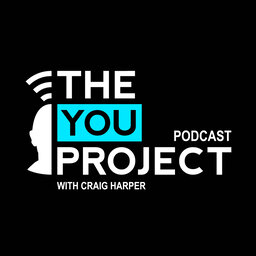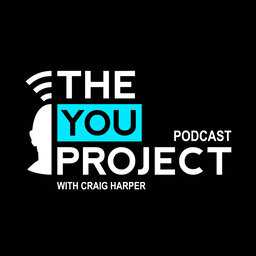#1900 UNSTUCK-IFICATION (The Process of Getting Unstuck) - Harps (PT1)
Hey Team, hope you’re great! I’m being an awesome son for a day or two, so I thought we’d revisit this episode that I recorded a while back, which was really well received, and I think it might be timely for some at the moment. *Treading water. Spinning our metaphoric wheels. Stuck in a Groundhog Day of mediocrity, dissatisfaction and frustration. Wasted time, talent and energy. Thinking, habits, behaviours, rituals and fears that keep us trapped in a prison of our own making. This episode is a workshop (of sorts) about stepping up, breaking through and getting unstuck. Enjoy.
 The You Project
The You Project


